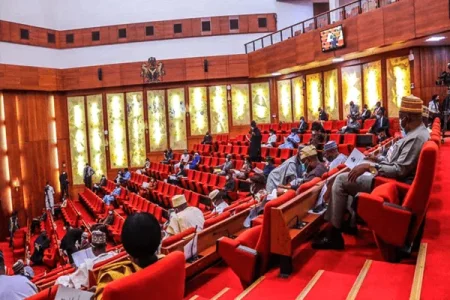
Nigeria is excluded from the United Arab Emirates' newly introduced five-year multiple-entry tourist visa, which further strains diplomatic relations between the two nations. This exclusion follows the UAE's decision in 2022 to stop issuing visas to Nigerian citizens, among others, without providing detailed explanations.
The new visa policy, announced by Sheikh Mohammed bin Rashid Al Maktoum in 2021, aims to enhance the UAE's global economic standing by facilitating tourism and business activities. The five-year multiple-entry tourist visa allows travelers to enter and leave the UAE multiple times, provided they spend at least 90 days in the country during each visit. The maximum permitted stay within a year is capped at 180 days.
The abrupt halt of visa issuances to Nigerian nationals in 2022 disrupted travel and led to the suspension of flights between the two countries after Emirates Airlines cited trapped revenues. Now, as the UAE unveils its ambitious visa scheme, the exclusion of Nigeria raises questions about the underlying diplomatic tensions and the potential economic consequences for both nations.
Issam Kazim, CEO of the Dubai Corporation for Tourism and Commerce Marketing, expressed optimism about the positive response to the five-year tourist visa. He highlighted its potential to attract tourists, especially from nearby regions like India, where over a million visitors have already flocked to Dubai in the first 10 months of its rollout. Kazim emphasized the ease of travel for tourists en route to Europe and the US, foreseeing increased attendance at events and concerts in the city.
However, as the UAE plans to expand the rollout of the multi-entry visa on a larger scale, the absence of Nigeria in this initiative remains a diplomatic challenge. The article explores the reasons behind Nigeria's exclusion and examines the broader implications for both countries. It delves into the potential economic impact, strained diplomatic ties, and the perspectives of government officials, tourism industry experts, and the citizens of Nigeria.
As Nigeria remains on the sidelines of this groundbreaking visa policy, the article concludes by pondering the future trajectory of diplomatic relations between the UAE and Nigeria and the geopolitical ramifications for the Middle East and Africa




